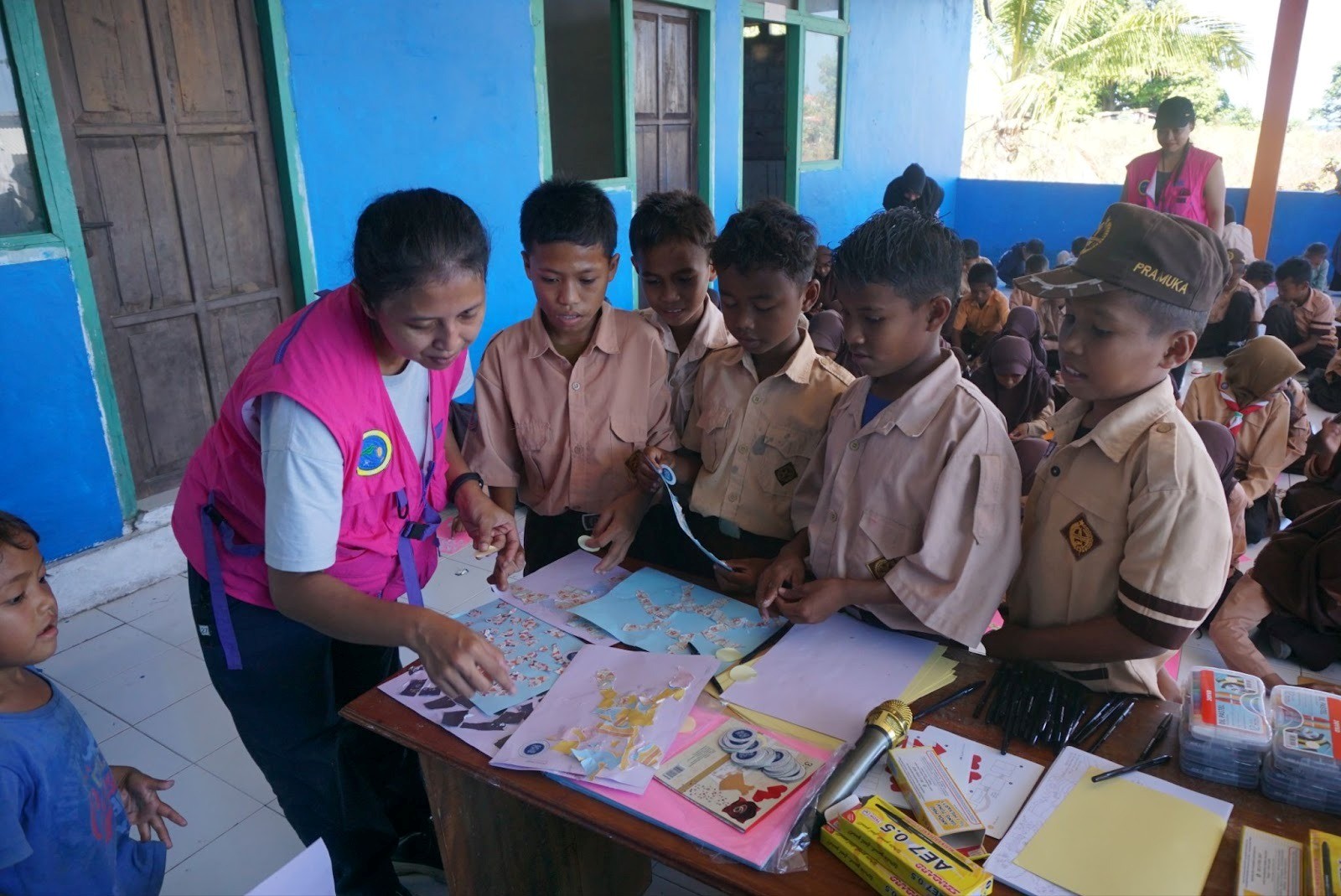ITB Agricultural Engineering Students Studied the Ecosystem Sustainability of Pangjugjugan Nature Tourism Village
By Adi Permana
Editor Adi Permana

JATINANGOR, itb.ac.id – In a field lecture as a part of the Agroecology course, 65 students and 13 experiment assistants visited the Pangjugjugan Nature Tourism Village. This activity also included six students from Universitas Pendidikan Indonesia (UPI) as the medical team.
“Students will determine the level of agricultural ecosystem sustainability in the Pangjugjugan area, Cilembu Village, through observation and integrated measurement of ecological, economic, and social parameters,” said the coordinator of Agroecology experiment assistants, Zahran (Agricultural Engineering, 2020).
The Agroecology field lecture’s objective is to provide students with opportunities to implement the knowledge that they have learned and to introduce them to the job prospects of Agricultural Engineering. In this activity, students stayed for two days and one night at the Pangjugjugan Nature Tourism Village.
The activities began in the early morning after a technical briefing. Students went to observation points that had already been determined. The observation was done by collecting direct microclimate and edaphic data and gathering samples of local flora and fauna. The students maintain a well-mannered attitude by not damaging plants and crops that are present in the local residents’ fields.

In the evening, they visited cow, sheep, and water buffalo husbandry near the Pangjugjugan Nature Tourism Village. During the visit, they had the opportunity to see livestock farming and interviewed the farm owners. The aim of this activity is for them to gain a better understanding of the economic and social aspects of farming.
In the afternoon, together with locals, an interview session was conducted to discuss the sociological perspectives of agriculture in Pangjugjugan Nature Tourism Village. This was done to collect more comprehensive data and wider perspectives.
In the night, the identification of biotas that had been collected earlier was carried out. The next day, after they had collected samples from the pitfall and cleaned the area, the field lecture concluded with a closing ceremony and a group photo session.
“Students got a clearer perspective on the implementation of archeological science to gather field data,” said a participant in this field lecture, Hafizh (Agricultural Engineering, 2020).
The Agroecology field lecture has provided Agricultural Engineering ITB students with precious experience in understanding the sustainability of agricultural ecosystems and in implementing the practical knowledge of agroecology. It is expected that through this activity, students will develop a deeper understanding of sustainable agriculture and its role in Agricultural Engineering.
Reporter: Ardiansyah Satria Aradhana (Agricultural Engineering, 2020).
Translator: Favian Aldilla R (Civil Engineering, 2019)

.jpg)
.jpg)


.jpg)

.png)

